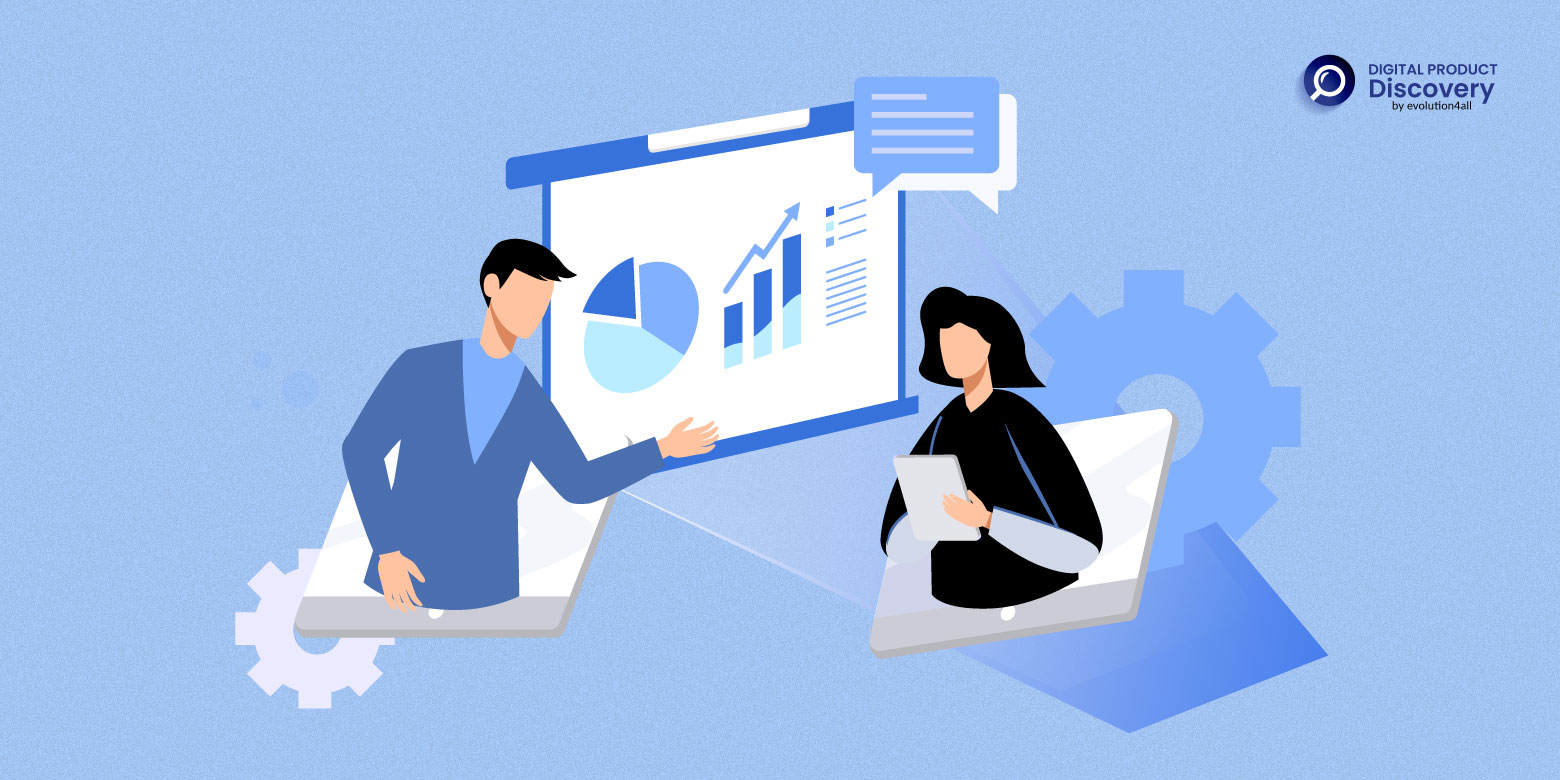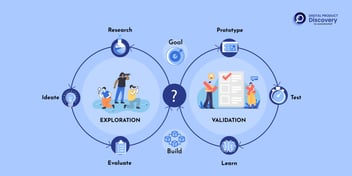Product Discovery Coaching

 If you are wondering what product discovery coaching consists of, in this article we explore this very current discipline, and the aspects to take into account when hiring the services of a coach or developing your internal practice.
If you are wondering what product discovery coaching consists of, in this article we explore this very current discipline, and the aspects to take into account when hiring the services of a coach or developing your internal practice.
Product Discovery is the core discipline of product coaching. Helping teams move from an output-based approach to an outcome-based product development approach is what Product Discovery is all about. Moving from building features to discovering solutions to problems worth building.
After the Agile era, now comes the product era. There are many opportunities to work as a product coach and more specifically as a product discovery coach. Because many product teams need help setting up a product discovery process to nurture ideas and initiatives.
The coach's job is to help organizations implement a seamless product discovery process and accompany teams in exploring and validating ideas for their construction.
Product discovery coaches are very rare as they require a certain background and a lot of experience in business and product. Typically the best coaches are former product managers, heads of product, product designers, head of engineering, entrepreneurs or even business owners.
In my opinion, 'hard skills' (which can be learned relatively easily) are not as important as background and product mindset. That’s the reason why business owners and startup founders make great product discovery coaches as well.
The magic of great product discovery coaches, like any other coach, is to be just one step ahead of the team and accompany them at their own pace by choosing the best tools, techniques and practices at the right moment.
Overall, the product discovery coach is a coach, not a consultant, and that’s what makes this discipline specifically difficult.
Product Discovery Coach Functions
As it could not be otherwise, the main work of the coach revolves around the discovery cycles: exploration and validation.
The coach accompanies you in the process and also in the preparation and design of the research, ideation sessions, prototyping, testing, and inception.
A good coach, even if her background is not design or research, must be able to get into the mud in each and every one of the phases of product discovery.
In addition, as you well know, the product discovery process is not isolated but rather forms an integral part of the normal operations of a healthy product organization.
Therefore, the coach must help you to perfectly integrate the discovery process within the team's operations and with the rest of the organization through the connection with the product roadmap.
To be able to effectively perform these functions the coach requires the following skills.
Product Discovery Coach Capabilities
When looking to hire a coach or develop the practice internally in your organization you should take into account what makes a great coach.
In the following table, you can see what in our experience are the mandatory capabilities and the nice to have. The mandatory are divided between general and core for better understanding.

You might ask why industry experience is not an expected capability.
Someone might argue otherwise, but in my own experience as a product coach I have been able to successfully work with product teams and mentor startups in all sorts of industries.
So, although industry acumen is key for a product manager or product leader, I don't think that's a required skill of a great product coach.
As you can see great product discovery coaches are professionals with huge experience and diverse backgrounds.
This is just a warning I leave here for posterity because I know how this world functions. In a few years, we will start to see product coaching certifications all over the place, and people with just a few years of experience as Product Owners or Scrum Masters will pay for these expensive certifications and believe they can coach product teams.
Internal vs External Coaches
In general, and this case is no exception, I don't think an enabling function should have a permanent or long-term position in an organization.
Neither Agile Coaches, Scrum Masters, Team Coaches, nor Technical Coaches should have a permanent position in an organization. In the same way, we know that something is wrong when an excessive dependency has been created with an external consultant or coach who has been 'helping' their client for too long.
Except for exceptional cases of companies with rapid growth, the coaching responsibility should fall on the most experienced members of the teams or on the leaders.
That said, if you are wondering whether to create a product discovery coaching practice in your organization, you should rather consider creating a community of practice, such as that may exist among front-end engineers, back-end engineers, QA, or product managers.
It is usual that Product Managers themselves end up becoming great Product Discovery Coaches, as well as Product Designers or UX Researchers.
If you do not know where to start and the practice of Product Discovery in your organization is still very incipient, or non-existent, you should bring an external product coach to accompany you in this process until you have your teams trained and the external coach goes away.
Did you like this article?
We help our customers to discover new sources of business growth by expanding into adjacent markets with an existing product, by introducing a new product to an existing market, or to a new market.
If you want to know how we can help you to start your Digital Product Discovery implementation you can check our Product Discovery Training and Product Discovery Consulting pages. If you prefer to start with the basics take a look at our Lean Product Management Training.




